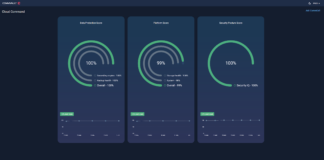Last year was challenging for organizations on many levels. Due to the global pandemic, many businesses were forced to close, while some shifted to remote work, which opened new opportunities for cybercriminals. This situation pressed organizations to look for new ways to improve their cybersecurity practices.
According to the data analyzed by the Atlas VPN team, in 2020, Virtual Private Network (VPN) was the most popular cybersecurity tool to combat increased cyber threats among Canadian organizations. In total, 59% of Canadian companies deployed VPNs last year.
VPNs, such as Atlas VPN, are services that enable internet users to connect to the internet via an encrypted tunnel this way ensuring privacy and protecting sensitive data.
The numbers are based on the 2020 CIRA Cybersecurity report, which features data from a survey with 500 IT security professionals working in Canadian organizations. Out of the surveyed organizations, 64% indicated they do business in Canada only. In total, 65% of organizations are private, while 35% are public or non-profit.
The second most commonly deployed cybersecurity layer in Canadian organizations was DNS Firewall. Half of the companies introduced DNS Firewall as one of the security measures last year. In short, DNS Firewall is a network security solution that blocks and redirects end-users from accessing malicious sites.
Password manager, an application designed to store and manage online credentials, was another popular cybersecurity tool among Canadian businesses in 2020. Last year, it was utilized by 46% of organizations.
Finally, online security training programs and phishing simulations round out the top five list. In 2020, 38% of Canadian organizations started educating workers on cybersecurity, including working remotely, using video conferencing software, and recognizing COVID-19 related threats.
Meanwhile, 37% of companies began testing employee awareness through phishing simulations. During a phishing simulation, IT specialists imitate a phishing attempt to see whether employees are vulnerable to such attacks.
Compared to 2019, fewer organizations took up these cybersecurity measures in 2020. However, last year Canadian organizations upgraded their cybersecurity practices by adding a more comprehensive range of security layers, such as VPN and single sign-on authentication.
8 in 10 organizations suffered a cyberattack last year
Last year, the majority of Canadian organizations had to face cyberattacks. Overall, 80% of organizations handled at least one online assault in 2020. In comparison, 71% of Canadian companies experienced at least one cyberattack in 2019.
Public companies or NGOs were more commonly targeted than private ones. In total, 90% of public organizations suffered a cyberattack in 2020, while the same is true for 74% of private businesses.
Some Canadian organizations were targeted by cybercriminals more often than others. Last year, 29% of companies experienced between 1 and 5 cyberassaults. In the meantime, 13% of businesses had 6 to 10 assaults directed at them.
What is more, over a fifth (21%) of organizations endured more than 10 attacks in 2020. While 9% of Canadian businesses underwent 11 to 25 assaults, 12% suffered more than 25.
The public sector once again leads when it comes to the frequency of cyberattacks. Last year, 26% of public organizations experienced more than 10 assaults, while the number dropped to 19% in private companies.
In 2020, cybercriminals frequently took advantage of the global pandemic to launch attacks. Over one quarter (28%) of Canadian organizations last year were targeted by COVID-19 themed assaults.
Source Atlas VPN















